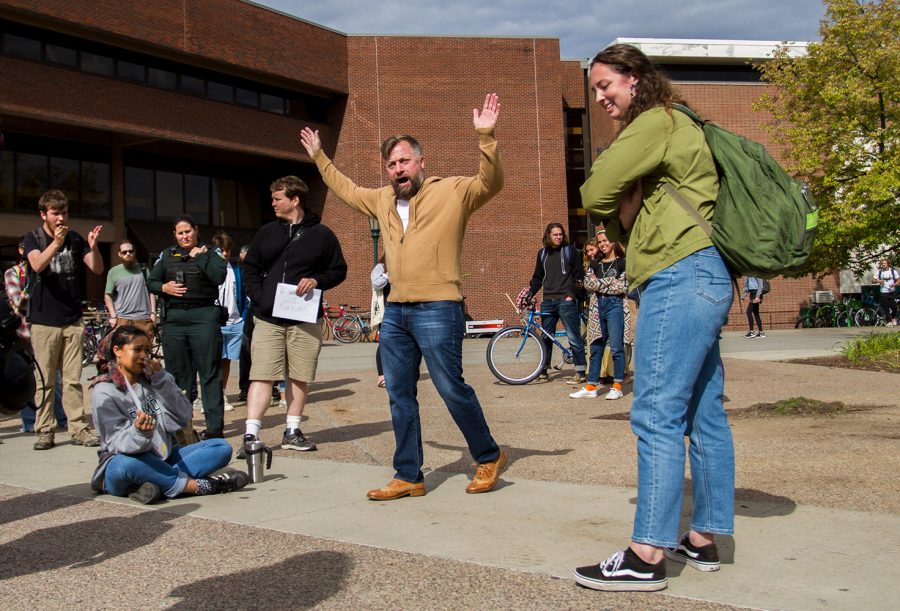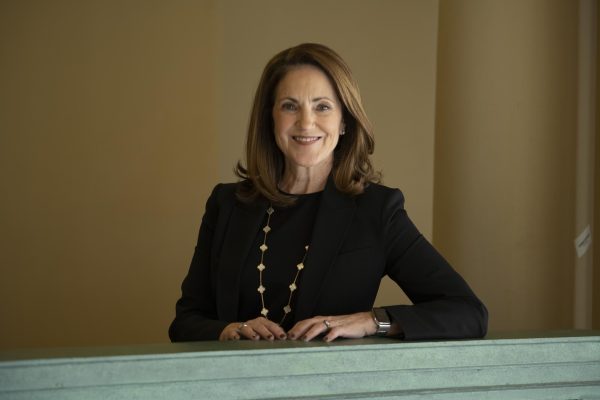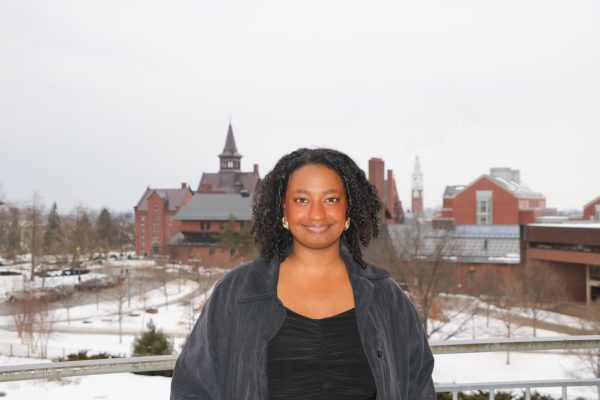Controversial preacher raises First Amendment questions
Preacher Keith Darrell stands in the Andrew Harris Commons, surrounded by onlookers, Sept. 30. Although many voiced objections to Darrell’s rhetoric, his presence was protected under the First Amendment.
Preacher Keith Darrell stood, Bible in hand, just after noon, Sept. 30, in the middle of Andrew Harris Commons.
As students passed by, a small group stopped to listen.
“Binary thinking is inescapable, you’re either serving the will of God or the will of Satan,” Darrell said. “Homosexuality is unnatural. It’s unnatural.”
Darrell is a traveling campus preacher for Whitefield Fellowship, an organization named after 18th century Evangelist James Whitefield.
At Youngstown State University in Ohio in September 2011, Darrell was arrested and charged with disorderly conduct. Still, Darrell continues to tour the U.S. preaching his views.
At UVM, students quickly surrounded him and began yelling back at him and a counterprotest was organized.
Several UVM Police Services officers responded to the event, but little could be done as Darrell has a First Amendment Right to speak in a public place, according to the Constitution.
Some students, including SGA President Jillian Scannell, a senior, were left upset by the events of Sept. 30 and the lack of clarity in campus free speech policies.
“We should all know specifically what we can and cannot do and what other people can and cannot do,” Scannell said. “I don’t want a harsher policy or an expansion of the policy, I just want some asterisk that explains and clarifies the policy.”
Scannell said that after talking to campus attorney Jen Papillo, she found the only things that can inhibit free speech, even speech that may be deemed hateful, are “time, place, manner” and if there is a “clear and present danger.”
Annie Stevens, vice provost for Student Affairs, said a campus can put parameters in place to offer free speech so long that it occurs at reasonable times, public spaces and in the proper manner.
A clear and present danger is a situation where people could be harmed, Stevens said.
Scannell said many students received Darrel’s message as a “clear and present danger,” but according to the law, it did not qualify as such.
Acting Chief of UVM Police Tim Bilodeau said officers spoke with students at the protest about their concerns, but ultimately, the police have to protect the Constitution.
“There is this expectation that police are going to enforce campus policy at the level they would with a criminal act, but we can’t use our police authority to violate the First Amendment right to free speech,” he said.
The preacher has a right to be there because these are public spaces, open to anybody and every year preachers show up on campus, Bilodeau said.
This very same man has been here before, he said.
“We are what we are when it comes to the power that is invested in us, we just aren’t everything,” Bilodeau said.
Everyone can participate in a dialogue on how to best deal with these scenarios, and stakeholders can be student groups as well as administrators, Bilodeau said.
SGA is hoping to hold a panel either next week or the week after with Director of Student Life Daphne Wells, Stevens, Papillo and a Deputy Chief of Police, outside on the green.
The panel will discuss free speech policies and students will be able to ask questions.

(She/her) Ella Ruehsen is a senior environmental studies major with minors in political science and reporting and documentary storytelling. Before becoming...










